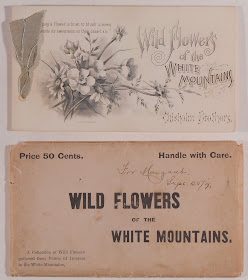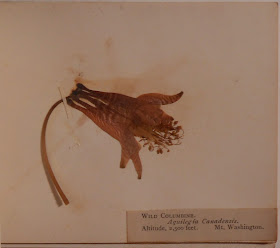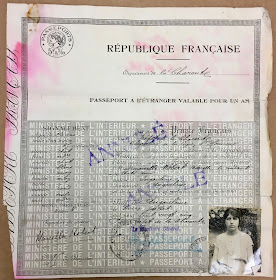 Two weeks ago we blogged an herbarium lovingly constructed by a 19th-century missionary. This week, we have a similar object, but one assembled by a clever entrepreneur rather than a passionate collector. Wild Flowers of the White Mountains, published by the Chisholm Brothers in the 1890s, is a selection of wild flower specimens "gathered from Points of Interest in the White Mountains." This particular copy was sold for 50 cents and was a gift to "Margaret" in September of 1891. At that point, many of the flowers in the book would not have been in bloom, so we know the tourist that gave this to Margaret was not the collector. He or she bought this as a souvenir to send to a loved one.
Two weeks ago we blogged an herbarium lovingly constructed by a 19th-century missionary. This week, we have a similar object, but one assembled by a clever entrepreneur rather than a passionate collector. Wild Flowers of the White Mountains, published by the Chisholm Brothers in the 1890s, is a selection of wild flower specimens "gathered from Points of Interest in the White Mountains." This particular copy was sold for 50 cents and was a gift to "Margaret" in September of 1891. At that point, many of the flowers in the book would not have been in bloom, so we know the tourist that gave this to Margaret was not the collector. He or she bought this as a souvenir to send to a loved one.We have a second copy of Wild Flowers of the White Mountains. It must have been assembled at a different date because the specimens it contains are different. On days like today when "Full many a flower is born to blush unseen and waste its sweetness on the desert air," we are thankful for these relics of the 1890s.
To see our copies of Chisholm's Wild Flowers, ask for White Mountains SB439.C44.



